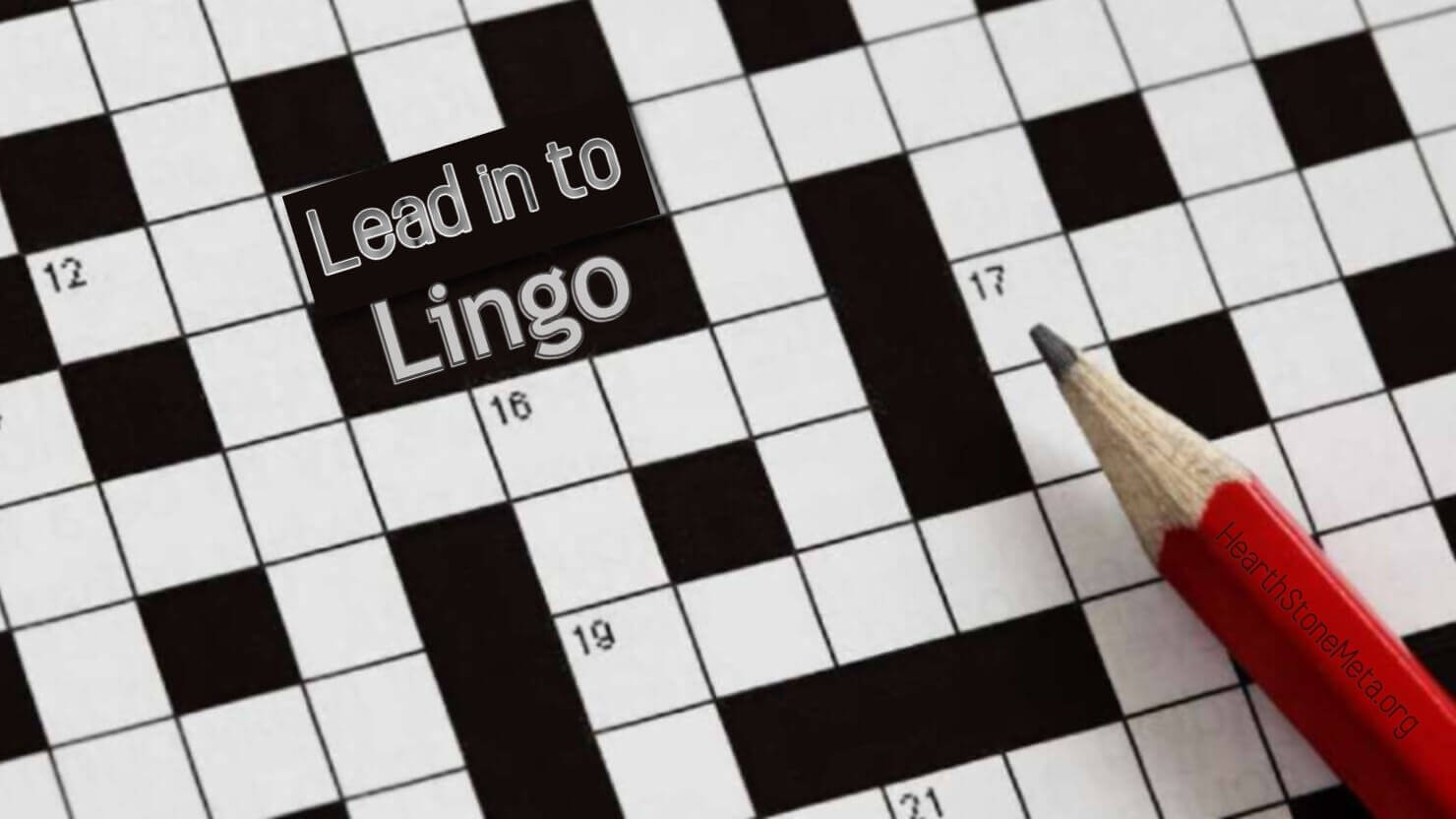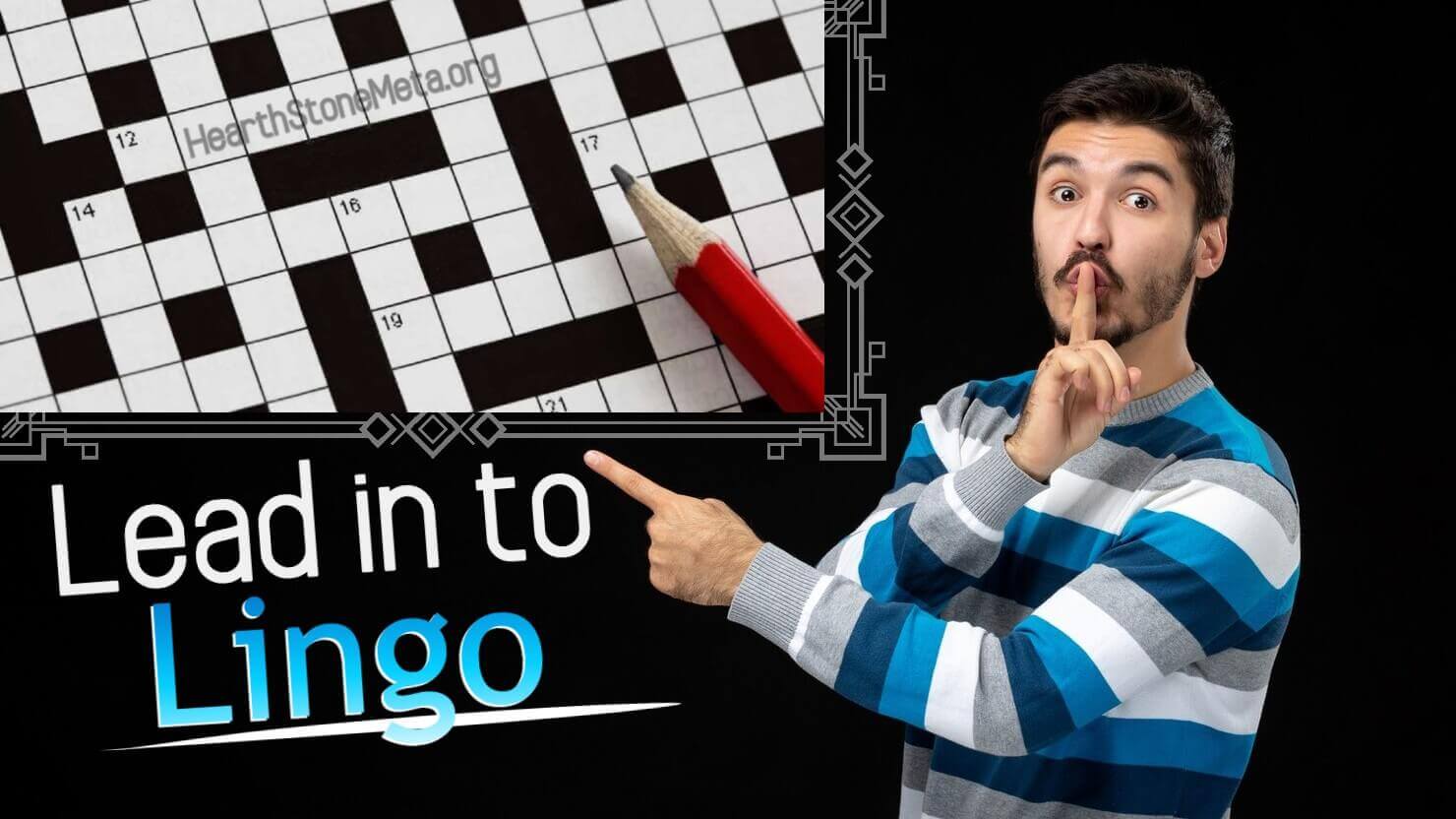Introduction
Crossword puzzles are a fascinating world of wordplay, riddles, and linguistic challenges. One clue often appearing in crossword games, particularly in The New York Times (NYT) Crossword, is “Lead in to Lingo.” If you’re wondering what this clue means and how this article will break it down.
What is Lead in to Lingo?

Lead in to Lingo is a crossword clue commonly found in NYT Crossword and NYT Mini Crossword puzzles.
The phrase hints at a word that precedes “lingo” to form a meaningful phrase. This clue is a classic example of how crossword puzzles test vocabulary and logical thinking.
The answer is typical “Argot”, “Jargon”, or “Slang”, as all of these words are associated with specialized language or terminology. However, depending on the puzzle, the answer might vary.
Lead in to Lingo NYT
NYT Crossword is one of the most challenging yet rewarding word games, loved by millions worldwide. The phrase Lead in to Lingo frequently appears in the puzzles, and seasoned solvers know to look for words that describe or precede the term “lingo.”
Some possible answers include:
- “Tech” – as in “Tech Lingo” (technology-related language)
- “Biz” – as in “Biz Lingo” (business language)
- “Jargon” – as in “Jargon Lingo” (specialized language)
Understanding these associations can help you solve crossword puzzles more efficiently.
Lead in to Lingo NYT Crosswords
The NYT Crossword has a reputation for being one of the trickiest puzzle games available, challenging players with clever wordplay and double meanings.
Lead in to Lingo is an example of a word association clue, where solvers must think about prefixes or words commonly used before “lingo.”
To solve such clues, consider:
- The number of letters – Crossword clues indicate how many letters the answer should have.
- Synonyms for language styles – Think of words that mean “language” or “terminology.”
- Context clues in the puzzle – Check intersecting words that may help identify the correct answer.
Here are a few common solutions based on past NYT Crossword puzzles:
- “Tech” (Tech Lingo)
- “Biz” (Biz Lingo)
- “Argot” (A specialized language)
- “Jargon” (Industry-specific terminology)
Lead in to Lingo NYT Mini
The NYT Mini Crossword is a shorter version of the traditional NYT Crossword, perfect for quick play sessions.
Although simpler, it still features clever clues like Lead in to Lingo.
For the NYT Mini Crossword, shorter words are more common, so possible answers could be:
- “Tech” (often used in tech-related conversations)
- “Biz” (used in business contexts)
- “Net” (as in “Internet Lingo”)
If you frequently play the NYT Mini Crossword, familiarizing yourself with these common prefixes can help you solve puzzles faster.
Why Lead in to Lingo is a Common Crossword Clue?
Crossword clues like “Lead in to Lingo” are popular because they test a player’s ability to recognize word relationships.
The NYT Crossword frequently includes wordplay, abbreviations, and references to different fields.
This particular clue is:
- Simple yet challenging – It seems easy but requires knowledge of language trends.
- Common in different crossword versions – It appears in both standard and Mini crosswords.
- Flexible with multiple correct answers – Depending on the puzzle, “Tech,” “Biz,” or “Jargon” could be correct.
By practicing word association puzzles, you can get better at spotting patterns and solving tricky crossword clues faster.
Tips for Solving Crossword Clues Like Lead in to Lingo
If you struggle with crossword clues like Lead in to Lingo, here are some expert tips:
- Think of synonyms – If the clue hints at language or terminology, consider words like “slang,” “jargon,” or “dialect.”
- Check the letter count – The crossword grid will tell you how many letters the word needs.
- Look at crossing words – The words that intersect with the answer can give you hints.
- Use a crossword solver – If you’re stuck, online tools can suggest possible answers based on known letters.
Conclusion
Lead in to Lingo is a common crossword clue in NYT Crossword and NYT Mini Crossword, requiring players to think about words that precede “lingo.”
Whether it’s “Tech,” “Biz,” or “Jargon,” recognizing these word patterns can help you become a better crossword solver.
Next time you see this clue, you’ll be ready to solve it in no time! Happy puzzling!
